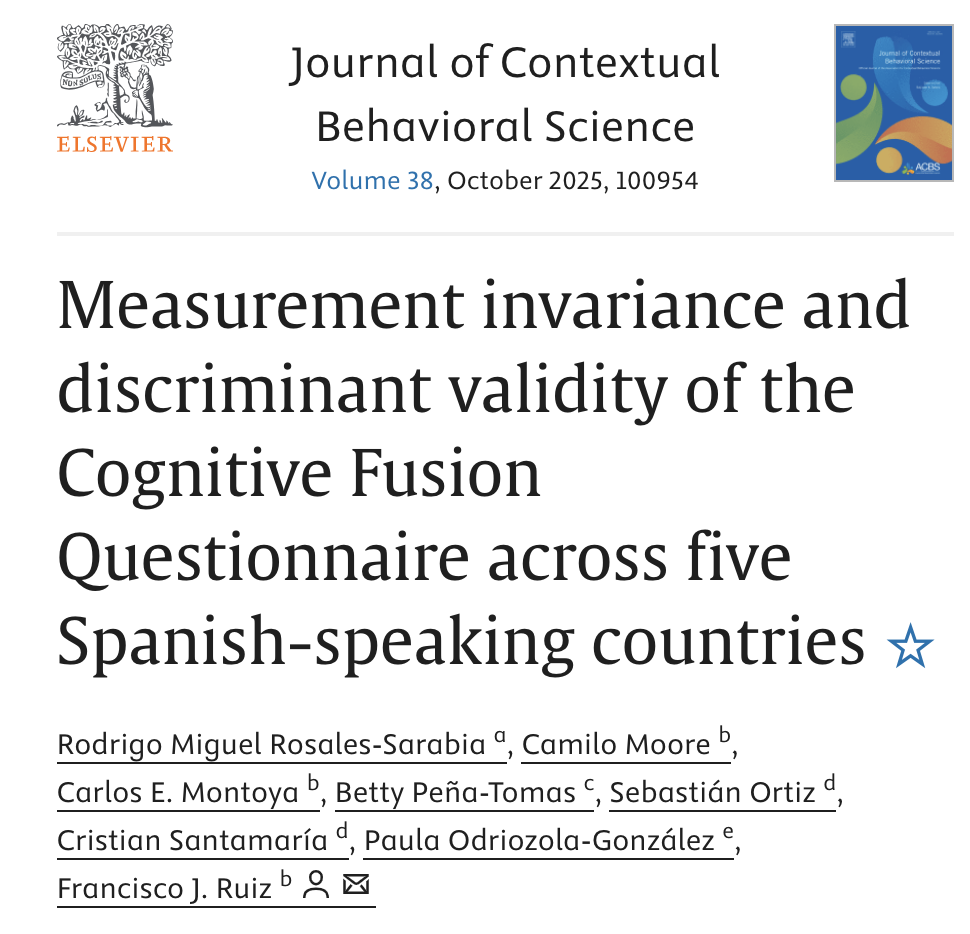Journal of Contextual Behavioral Science (JCBS)
Volume 38, October 2025
Authors
Rodrigo Miguel Rosales-Sarabia, Camilo Moore, Carlos E. Montoya, Betty Peña-Tomas, Sebastián Ortiz, Cristian Santamaría, Paula Odriozola-González, & Francisco J. Ruiz
Key Findings
- The CFQ showed a one-factor model across five Spanish-speaking countries.
- The one-factor model showed factorial equivalence across countries.
- The CFQ demonstrated adequate discriminant validity in relation to emotional symptoms.
Abstract
According to acceptance and commitment therapy (ACT), cognitive fusion is a critical process contributing to psychopathology and behavioral ineffectiveness. The Cognitive Fusion Questionnaire (CFQ) is the most used tool to assess this process and has been validated in various languages, including Spanish. However, the factorial equivalence of the CFQ across countries has been scarcely investigated, thereby precluding cross-cultural analyses of cognitive fusion. Additionally, it is necessary to explore the discriminant validity of the CFQ in relation to emotional symptoms to ensure that it assesses a distinct construct from negative emotions. Accordingly, this study examined the CFQ's factorial equivalence and discriminant validity in relation to emotional symptoms across samples from five Spanish-speaking countries: Colombia, Peru, Mexico, Chile, and Spain (total sample of 3389 participants). The CFQ demonstrated good psychometric properties in all samples, and the one-factor model showed measurement invariance across countries. The CFQ also demonstrated discriminant validity in relation to the Depression, Anxiety, and Stress Scale – 21 (DASS-21). In conclusion, the CFQ appears to be a reliable and valid instrument for measuring cognitive fusion across Spanish-speaking countries, and it measures a construct distinct from negative emotions.
